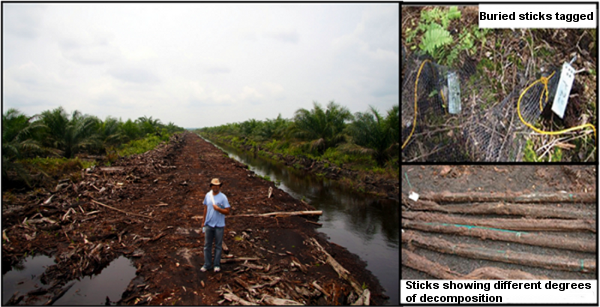Environmental Microbial Processes in Waste-to-Energy Conversion
Plant waste is the most voluminous waste worldwide. However, 70% of plant biomass is lignocellulose, which does not easily undergo biodegradation. Our research team has been applying ecological selection principles from the functioning of tropical peatlands. The sequestered plant biomass in these ecosystems undergoes rapid oxidative degradation when peatlands are drained for agriculture, to release the carbon as CO2 into the atmosphere. While we are studying the biological basis of this nearly 800MT CO2 emission per year from tropical peatlands, this study is also providing us with a basis to discover microbial basis of biomass oxidative decomposition.
In order to understand peatland dynamics, system-level technologies such as metagenomics and metabolomics, combined with custom computational platforms are being applied in our studies. Using these technologies, our research team has characterized consortia of microbes, described their natural physicochemical environment, and developed an understanding of their metabolic processes. Based on this knowledge base, our team has identified novel enzymes and pathways to enhance biodegradation of lignocellulosic wastes. Novel bioprocesses are currently being developed by combining the microbial ecology and physicochemical parameters. We hope that these ecology-inspired approaches will provide novel solutions for utilizing world's largest resource of waste.
This work is being done in collaboration with researchers from LIPI, Bogor, Indonesia and the Singapore Delft Water Alliance.

For more information, please contact:
Associate Professor Sanjay SWARUP
E-mail: sanjay@nus.edu.sg

